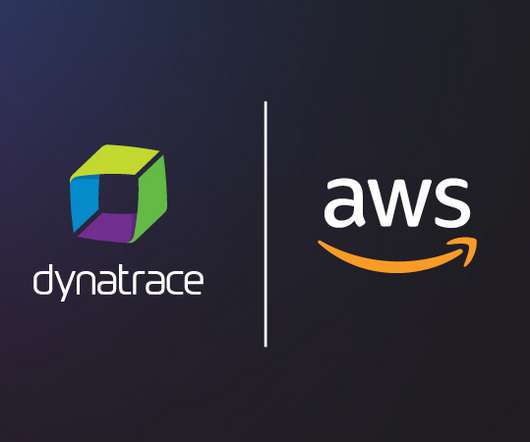AWS Re:Invent 2021 guide: Multicloud modernization and digital transformation
Dynatrace
NOVEMBER 22, 2021
When Amazon launched AWS Lambda in 2014, it ushered in a new era of serverless computing. Serverless architecture enables organizations to deliver applications more efficiently without the overhead of on-premises infrastructure, which has revolutionized software development. Dynatrace news. Learn more here. What is AWS Lambda?












Let's personalize your content